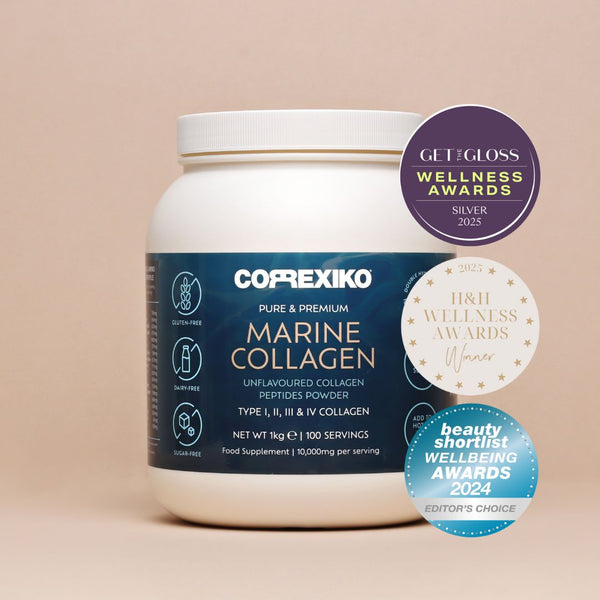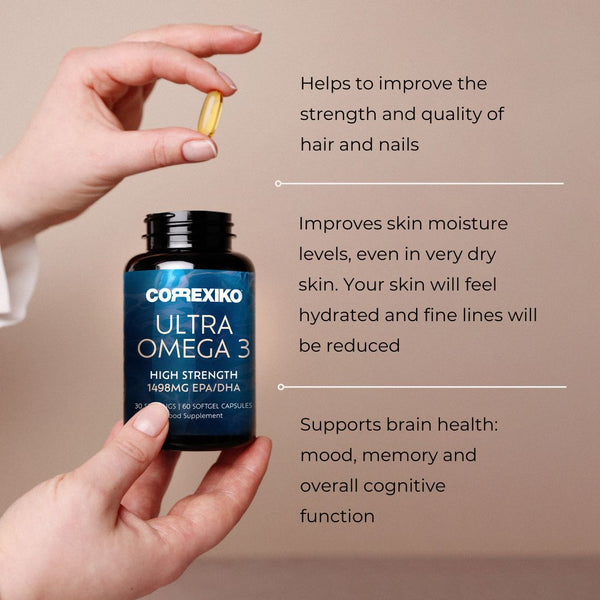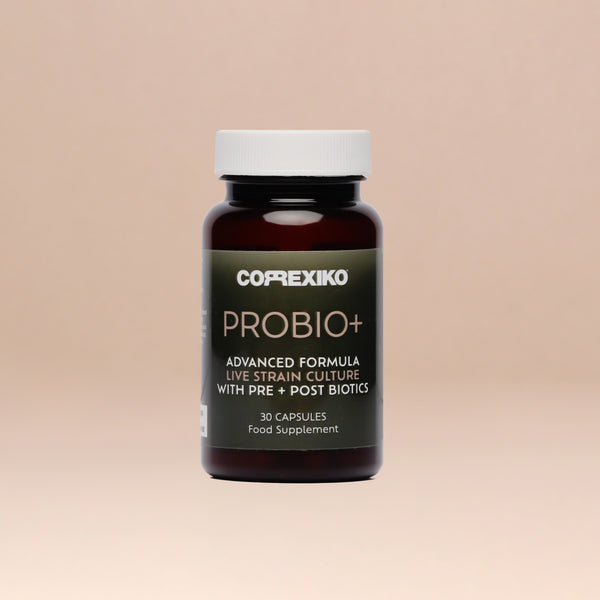By Lucy Miller, PT and Health Writer
As we approach our menopausal years, our levels of collagen and oestrogen fall dramatically, which can greatly impact the health of our skin, hair, nails and joints - and mood.
Here are six easy and effective changes you can make to mentally and physically shine brighter during menopause.
Eat more vitamin C
You’re probably familiar with vitamin C, the antioxidant found in citrus fruits like oranges and veggies like peppers.
While vitamin C can give your immune system a boost, it can also revitalize your skin and give it a healthier glow by helping to neutralize the free radicals which can break down elastin and collagen and can lead to the appearance of wrinkles.
Now the problem is your body can’t produce or store vitamin C itself, so you have to eat it daily to get enough. This can be in the form of supplements or through food.
Author of ‘Skin Talks’ and ‘Skin Rules: Your 6-week Plan to Radiant Skin', Dr Jaishree Sharad recommends that men get around bout “90 mg per day and women 75 mg” - although in cases of pigmentation and other skin conditions, she recommends around “1000 mg per day” which can be found in foods like oranges, lemons, kiwis, pineapples, cherries, blueberries, papaya, tomato, and broccoli.
Drink up
Up to 60% of the adult human body is water and according to H.H. Mitchell, Journal of Biological Chemistry 158 , the brain and heart are composed of 73% water, and the lungs are about 83% water. The skin contains 64% water, muscles and kidneys are 79%, and even the bones are a watery 31%.
The National Academies of Sciences, Engineering, and Medicine recommends that men consume 3.7 litres and women get 2.7 litres of fluids per day which can come from water, clear fluids and better still water-rich fresh fruits and vegetables, which will release water into your body gradually, over time, and not just flush through your system and into your urine.
So how does this help our skin? Well, water not only gets rid of toxins and waste, which can dull our sparkle but it also hydrates the skin. It’s also likely that your face and body will feel drier than usual, and ‘extra hydration is required to prevent excess water loss from the skin surface’ explains doctor and author of The Water Secret Dr Howard Murad.
Manage your stress
”Chronic Cultural Stress promotes chronic inflammation, which leads to “inflammaging,” the degenerative effects of inflammation over time” explains Dr Howard Murad. “In fact, virtually all of the disease conditions we associate with ageing are linked to stress and inflammation meaning stress management is not a luxury - it’s essential”, he explains. To help manage your stress why not try some meditation or a nice walk in nature? Studies show that the practice of of silence, like meditation, can bring relief from common menopause symptoms like brain fog and hot flushes whilst walks in nature can also help with mood swings because aerobic exercise can help fight depression and anxiety, both common menopause symptoms.
Get enough sleep.
”In addition to reducing stress, sleep is your body’s “rest and repair” cycle, the time it allocates for repairing and restoring the damage from the previous day. Skipping sleep is like “skipping scheduled maintenance on your car: it only leads to a bigger repair bill down the road”, says Dr Murad.
To beat perimenopausal sleep issues and ensure you get enough shut-eye refrain from eating a few hours before you go to bed and instead try a warm drink like our Hot Cocoa which will help you feel calm and settled and reduce blue light from your phone or technology which according to physiologist and sleep and energy expert, Dr. Nerina Ramlakhan can “delay the release of melatonin meaning we feel less tired, which in turn delays sleep onset and disrupts the quality of our sleep."
Eat for your mood
If you’ve experienced a drop in confidence during menopause, you’ve probably noticed a drop in your mood too. The key here is to avoid snacking on sugary foods which can often lead to a sharp rise in your blood glucose level followed by a sharp dip which leaves you feeling tired drained and cranky.
If you like to snack then go for fresh fruit with a few nuts instead.
Also try to stock up on protein-rich foods like turkey, cottage cheese, oats and legumes which all contain the amino acid tryptophan to help manufacture the neurotransmitter serotonin. This neurotransmitter is vital for regulating your mood and could also support sleep and appetite which can make you feel better in yourself. Other useful strategies to help you feel less irritable is to always start the day with a healthy breakfast like this Blueberry and Collagen Breakfast Smoothie as recommended by model, presenter and Correxiko Ambassador Lisa Snowdon. Not skipping meals will also prevent erratic blood sugar levels that can lead to irritability and mood swings.
Lastly - find what works and stick to it!
Making changes to your skincare regime is an easy place to start to keep you glowing inside and out thorough menopause and there is a great deal of science to prove that supplementing your diet with Double-hydrolysed collagen like Correxiko’s marine or bovine collagen will help maintain your natural levels, and work towards keeping skin tight and plump as well as support the quality and health of hair, nails and bones.









